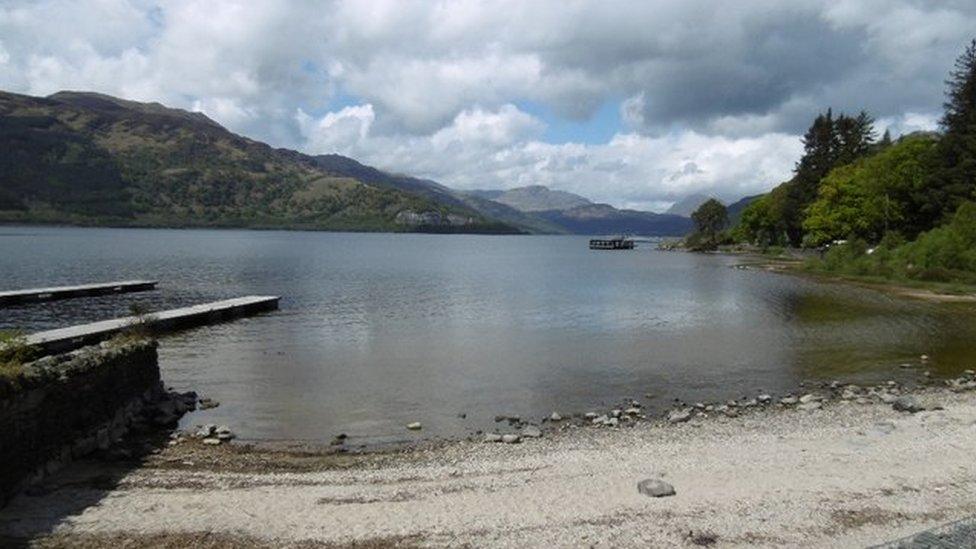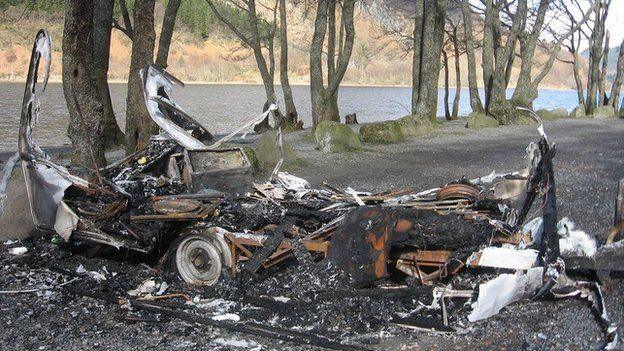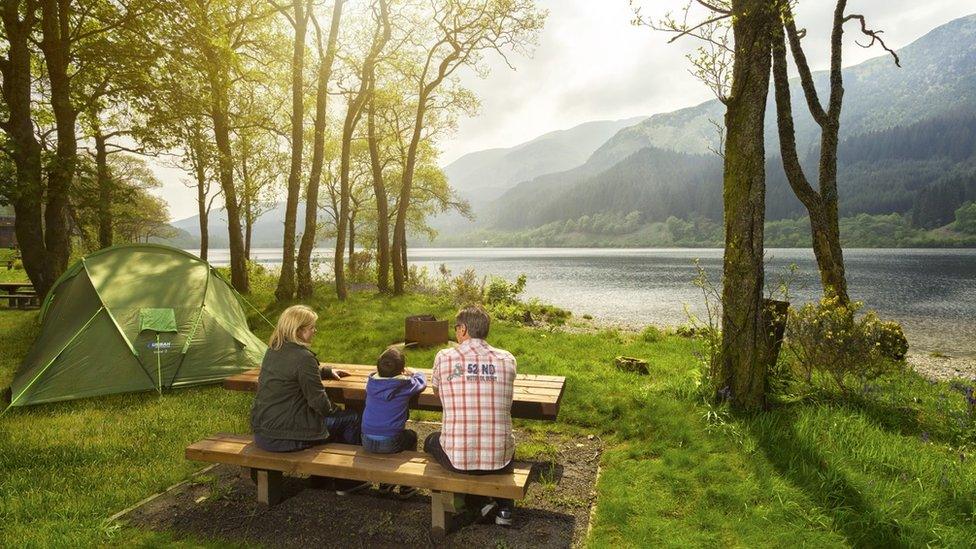Hundreds warned over Loch Lomond camping law breaches
- Published

The by-laws restrict wild camping along the shores of Loch Lomond between March and September
Hundreds of people have been given warnings and 10 have been reported to prosecutors for breaching new laws on camping in a national park.
The seasonal by-laws restrict camping along shores in the Loch Lomond and the Trossachs National Park.
They were introduced in March to help tackle long-standing problems with anti-social behaviour and litter.
A total of 828 people have been warned by police and park rangers for contraventions since then.
And 10 cases were reported to the Crown Office relating to unauthorised camping, fire-lighting, refusing to provide details and refusing to leave when asked to do so.
The by-laws are in place between March and September, and restrict camping along much of the shores of Loch Lomond, as well as busy loch shores near Aberfoyle, Strathyre and Lochearnhead.

The by-laws are aimed at preventing scenes like this
Park authorities say the four camping management zones cover less than 4% of the park area.
But they were fiercely opposed by outdoor recreation groups and campaigners for access rights.
Those wanting to camp have to buy a permit or use official sites, with more than 16,000 people doing so - although the average occupancy rate across all of the camping permit areas was only 15%, and 22% at Loch Chon campsite.
Challenges identified by the park for future years include the monitoring of potential displacement of campers to other nearby areas, the level of resources needed to maintain the by-laws in the long term and continuing problems with litter and human waste.
'Positive feedback'
Gordon Watson, the park's chief executive, said: "From the positive feedback we've gathered through the visitor survey, to what our rangers have experienced by talking to campers on the ground during the first season, we are really pleased with how things have gone.
"The approach of our ranger service is always engagement and education first, with enforcement action only being taken as a last resort. That approach has worked well, with the vast majority of campers choosing to adhere to the by-laws.
"While warnings were issued, the number was small in proportion to the overall number of visitors and only a very small number of people were then reported to the procurator fiscal."
But Helen Todd, campaigns and policy manager at Ramblers Scotland, said the report showed that the by-laws were "deterring people from camping, criminalising responsible campers and failing to resolve many of the issues they were designed to tackle".
She added: "We continue to call for the by-laws to be withdrawn, and for issues with anti-social behaviour and over-use of camping spots to instead be tackled by educating people, enforcing existing laws and providing toilets, bins and low-cost campsites."
- Published1 March 2017
